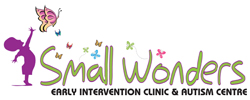Play Therapy
Play Therapy is based on the fact that play is the child's natural medium of self-expression It is
generally employed with children aged 3 to 11 years and provides a way for them to express
their experiences and feelings.
INDICATIONS
Children dealing with parental conflict, separation or divorce.
Traumatized children (sexual, physical or emotional abuse).
Children who have been adopted or are in foster care.
Dealing with issues of loss.
Children who have been hospitalized.
Children who have witnessed domestic violence.
Children who have experienced serious accidents or disasters..
Children diagnosed with Attention Deficit Disorder (ADD/ADHD)
Children diagnosed with Autism Spectrum Disorder (ASD).
TYPES OF PLAY THERAPIES
Group Play Therapy.
Individual play therapy.
Free Play therapy.
Directive Play.
Non- directive play.
PURPOSES OF PLAY THERAPY
Reduces anxiety about traumatic events in the child's life.
Facilitates a child's expression of feelings.
Promotes self-confidence and sense of competence.
Develops a sense of trust in self and others.
Defines healthy boundaries.
Creates or enhances healthy bonding in relationships.
Enhances creativity and playfulness.
Promotes appropriate behaviors.
Play therapy lets children sort through complicated feelings and use play to communicate at
their own level and at their own pace, without feeling interrogated or threatened. This is a key
aspect of play therapy.
PLAY THERAPY TECHNIQUES AND INTERVENTIONS
In play therapy, therapists allow children (often but not always, sometimes adult too use play
therapy) to play during sessions, rather than simply sitting with them and asking questions.
Play therapy can be directive, like having a child to tell a story about a family using puppets to
learn more about the client’s family dynamics. It can be more about non-directive, as in the
case of allowing a child to play with sand to relieve stress.
Just as there are many different ways that children play, there are many different ways of play
therapies:
Non-directive play therapy.
Puppets / doll house/ other tops for the purpose of pretend play.
Interpret play for emotional content.
Directive play therapy.
Interpret drawings for emotional content.
Painting / drawing for the purpose of emotional expression.


